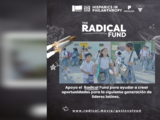Without knowing it, you could be hindering your child’s academic well-being. Here are the keys to figuring it out

The best evidence of parents’ love for their children is to prepare them for the future, and the backbone of that task is education.
However, a recent study in which almost 2,000 parents of K-12 students across the country were surveyed, and from which we’ll share some interesting data, showed that many of them are far - very far - from knowing exactly how well or poorly prepared their children are - pedagogically speaking.
Isn't it astounding?
The aforementioned study, conducted by Gallup and Learning Heroes, called B-flation: How Good Grades Can Sideline Parents, found that, for the most part, 64% of those surveyed, stated that report cards are their main guide to knowing whether their children are levelled with the learning scale that they should’ve achieved based on the grade they’re in.
The study's title succinctly communicates its premise: it suggests that when parents see grades such as a B or an A, they are likely to assume that the child has learned everything taught and even more. This is referred to as B-flation, where the B inflates the result and deceives.
So, if this applies to you, know that the report card includes more than just grades; it also incorporates attendance, participation, and effort scores. That means it’s not a net knowledge qualification, but rather a mixture of several conditions.
The study concludes that, at the national level, in the United States, parents only pay attention to those incorrect measurements, instead of, for example, to their annual tests.
These are standardized and highly credible tests that allow you, as a parent, to get a clear picture of how advanced your child’s learning has been. Are they at the level they should be for their grade level? Higher? Lower?
These test results suggest that more than half of the children are below the level they should be for their school grade.
One consequence of parents not knowing whether their child is at a disadvantage in terms of the expected knowledge is that they may not realize the need to support them in reinforcing their learning strengths and progress. In other words, the child will be like a drifting ship.
“If we need to act, we will. But we cannot act without information,” said Bibb Hubbard, founder and president of Learning Heroes, a national nonprofit organization that supports families and educators to work together to promote student learning and well-being, and which created the survey with Gallup.
And he’s right, “knowing” is important.
The following information indicates that parents need to learn to measure their children’s knowledge, just as schools do,
* In reading: Nearly nine out of 10 parents believe their children are at or above grade level.
* In math, 89% of those surveyed may not be seeing the full academic picture, meaning they may not know their children are behind in their learning.
Fortunately, some positive figures also provide insight into the situation.
* Such as 74% know their child is below grade level in math, and have discussed it with the teacher, compared to 50% of other parents overall.
* 97% are concerned about their child’s math skills, compared to just 22% of all parents who say their child is leveled with their grade or above.
By the way, to bridge that gap between what parents like you perceive is their children’s academic performance and reality, Learning Heroes, in association with the National Urban League, UnidosUS, Univision, U.S. Chamber of Commerce Foundation, National PTA, UNCF and GreatSchools.org, launched “Go Beyond Grades,” a national campaign, made in English and Spanish, created so that families and educators can find free tools, resources, videos and more.
For more information, visit https://gobeyondgrades.org/.




